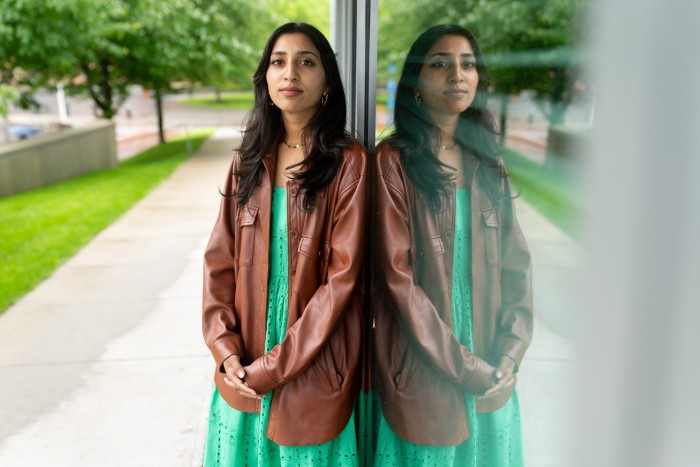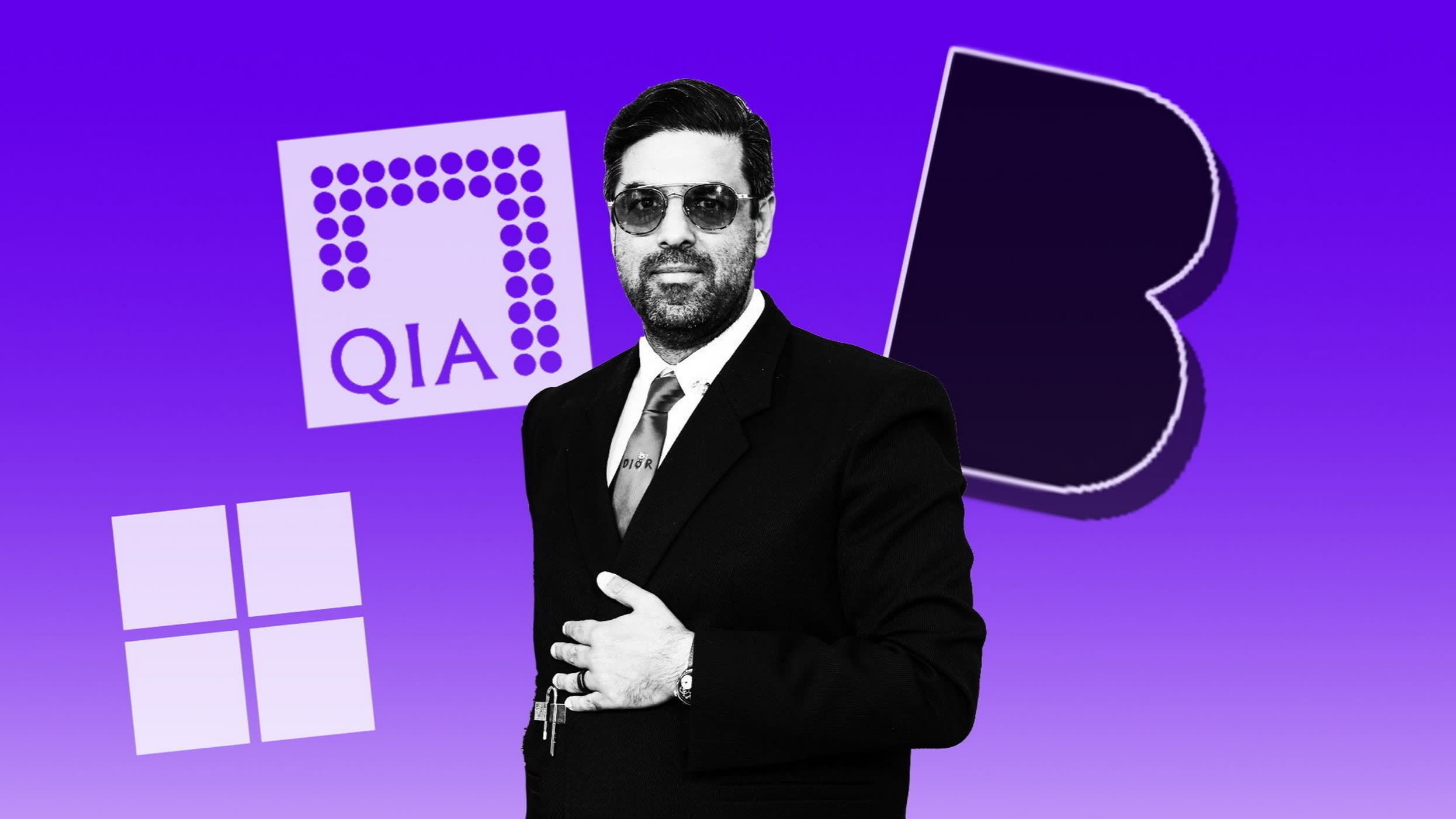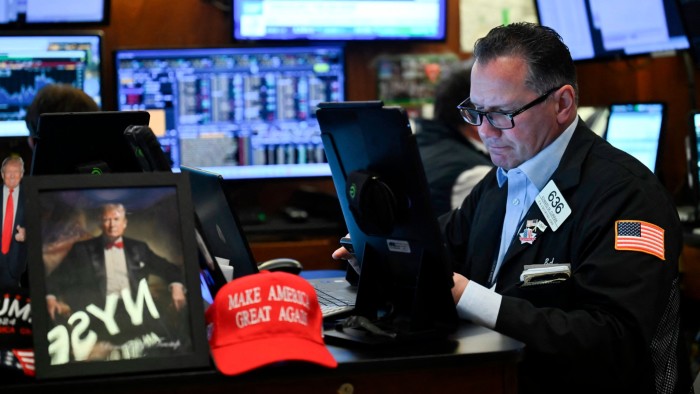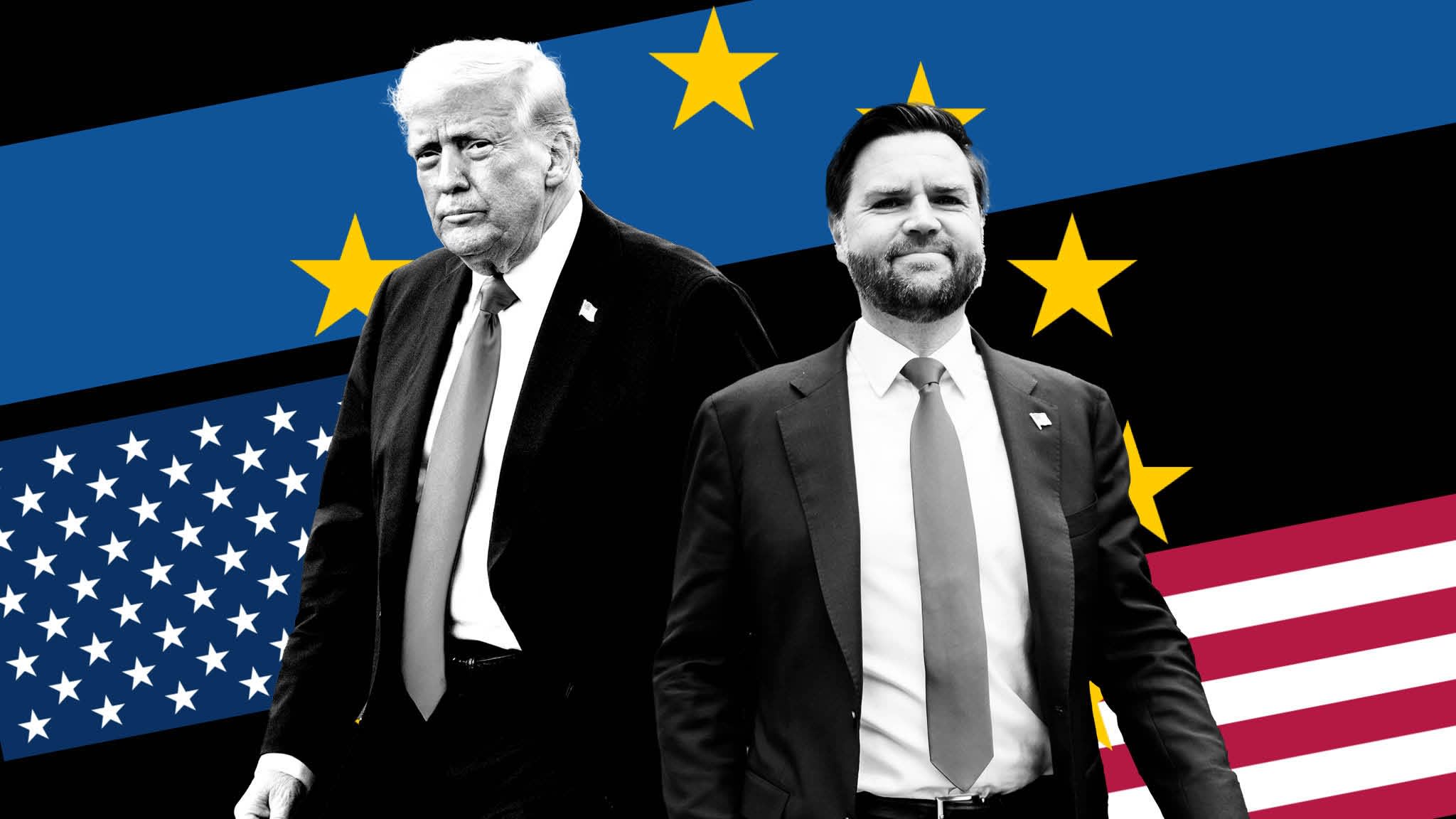‘Sword of Damocles’: Trump’s Harvard attacks leave students anxious

For 23-year-old Matthew, thinking about his future after graduating from Harvard University later this week feels like “walking along one of those really rickety old rope bridges from Indiana Jones”.
The humanities student, who hails from the UK, explained: “You can’t really see the other side but you know it’s going to get somewhere . . . you don’t really know if it’s stable and you can trust it.”
That sense of uncertainty hit many international students last Thursday, when the US Department of Homeland Security moved to ban them from attending Harvard. The plan — temporarily blocked by a court order a day later — marked a serious escalation in a months-long battle between President Donald Trump’s administration and the Ivy League college.
An alma mater of eight US presidents and a bastion of the country’s establishment, Harvard has become the epicentre of Trump’s assault on higher education.
The president promised on the campaign trail last year that once he returned to office, he would take on institutions he described as “turning our students into communists and terrorists and sympathisers of many, many different dimensions”.
His administration has begun to fulfil that commitment, pulling some government grants from a handful of top US universities, including Harvard, Columbia and Princeton. In many instances, he and his administration have alleged that the institutions have failed to quell antisemitism. The president’s critics see a more widespread crackdown on free speech under way.
Simultaneously, US Immigration and Customs Enforcement made arrests across campuses. The most high-profile case was that of Mahmoud Khalil, a Columbia University graduate who was in March taken into custody for his pro-Palestinian activism. He remains in a detention facility in Louisiana.
But Harvard has plainly unnerved the president — and become the target of his most aggressive attacks. It may be a response to the university’s posture. Unlike Columbia, which agreed to restructure parts of its governance after Trump’s administration slashed $400mn of funding, Harvard has rebuffed the full extent of Trump’s demands, including reforms to its governance structure and admissions process, and to surrender all detailed records of its international students.
“Harvard brought these consequences upon themselves — they have promoted and allowed violent activity on campus,” DHS secretary Kristi Noem told Fox News shortly after announcing the ban on foreign students, who made up 27 per cent of enrolled students at the university last year.
The ban on foreign students, coupled with old and new threats from Trump to slash billions of dollars in the university’s federal funding, has brought warnings of dire consequences even for one of the deepest-pocketed Ivy League schools.
On the surface, that was hard to tell on the ground in Cambridge, Massachusetts, Harvard’s home just outside Boston.
On Saturday, just days after the announcement, the mood in Harvard Yard — a bucolic stretch of green space at the heart of the university — was relaxed and cheerful.
The academic year was over but proud parents in smart attire were on the campus for graduation ceremonies, while final-year students scattered across it for “senior week” festivities.
Beneath the surface, however, several domestic and international students described “palpable” anxiety about the deepening stand-off with Trump — and its consequences.
Tobi, a graduate student at Harvard’s law school and one of many who feared being targeted by the Trump administration if they gave their full names, said the president’s latest attack had not surprised him.
Harvard had become a “pincushion” for Trump, Tobi said. He and his classmates were “pessimistic and concerned” about what would happen to their international friends.
“It’s like a sword of Damocles dangling over us” said “John”, a British student in Harvard’s law school who did not want to use his real name.
Gabe, a student at the Harvard Graduate School of Design, said he felt “incredibly frustrated” and believed allegations of antisemitism were a “Trojan horse” for the Trump administration’s attack on the university.
Gabe said he had “never felt unsafe as a Jewish student around international students”. But other Jewish students at US universities including Harvard have felt intimidated, and leaders said antisemitism had become a problem on campuses, especially during protests that followed Israel’s war in Gaza after Hamas’s October 7 2023 attack.
About 7,000 miles away, a young Pakistani man due to start at the Harvard Kennedy School this autumn was also now unsure about his future. He also asked that his name be withheld. He had already been feeling gloomy about making it to Cambridge at all, he said, given talk of Trump’s rhetoric about international students and foreigners, and tighter visa requirements.
On Monday, the president upped the ante again, declaring in a social media post that he was considering stripping Harvard of $3bn in grant money. In a separate post, he referred to the “radicalised lunatics” he believed were among international students.
The US General Services Administration will on Tuesday send a letter to federal agencies asking them to “identify any contracts with Harvard, and whether they can be cancelled or redirected elsewhere”, a senior administration official said.

While Harvard’s administration works out how to respond to Trump’s latest attacks, some students expressed support for its efforts to resist the government pressure.
“I think people were actually, candidly speaking, pleasantly surprised that the administration did take a stand,” said John.
Matthew, the Briton — and another of the many students who was reluctant to give their full name — said he was “pretty appalled by the fact that Columbia just rolled over and died, and I was very worried that Harvard was going to do the same”. Now he was “genuinely proud” of his university’s stance.
But Sarah, a 25-year-old domestic student at the Harvard Graduate School of Design, said the university should have done more to protect its international students this year.
She described a feeling of “anxiety in the studio” because Harvard’s leadership “isn’t incredibly transparent with a lot of stuff that’s going on”.
If Trump succeeds in shrinking Harvard’s international student body, it will mark a major blow against one of the world’s pre-eminent factories for global leaders. Current heads of state who went to Harvard include Canada’s Mark Carney, Greece’s Kyriakos Mitsotakis and Singapore’s Lawrence Wong.
Komala Anupindi, a 23-year-old American masters student at the Kennedy School, said her understanding of policy solutions was richer for the perspective that her international peers brought to the classroom.
John, the Briton, said foreign students at Harvard performed “a very significant service to the country of . . . broadening people’s minds”.
As the anxieties for the Harvard students have deepened in recent months, ties between the international and domestic populations in Cambridge have deepened, too.
“You’d be stunned at how many marriage proposals I’ve received,” Matthew joked. “Which is very nice, you know, but unfortunately I don’t think that works with the green card system anymore.”






